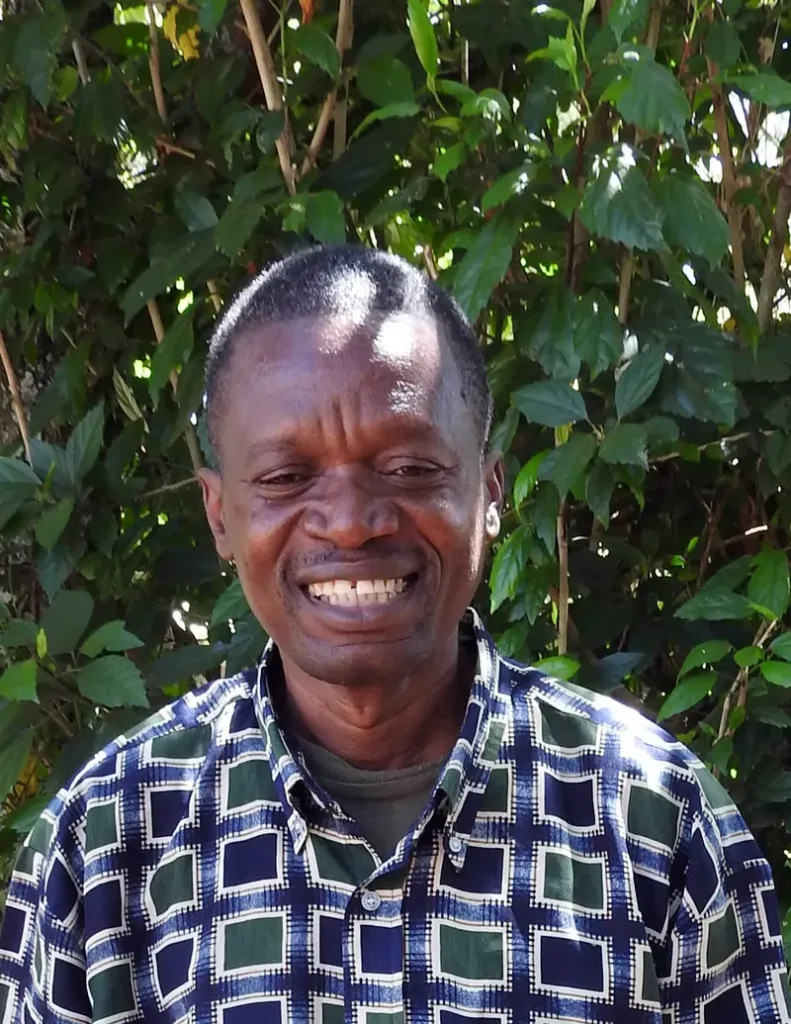TRADITIONAL BLACKSMITH TECHNOLOGY As a Climate Change adaptation strategy of Datoga community
The Datoga are a Nilotic tribal ethnicity group living in the lake Eyasi basin of rift valley in Northern Tanzania, they are predominantly semi-nomadic pastoralists grazing cattle, goats, and sheep.
The Datoga are threatened by land-use change due to anthropogenic activities in the lake Eyasi Basin and the effect of the climate changes.
In a recent Focus Group Discussion held at Qang’dend village in Mang’ola area by the SFS-Center for Wildlife Management Studies in Tanzania, the participants discussed their experiences of climate change over the past decade. It was observed that the number of rainy days has decreased compared to previous years. Additionally, there has been an increase in temperature, and the drought season has extended from mid-May to late February, whereas it previously ran from June to late November.
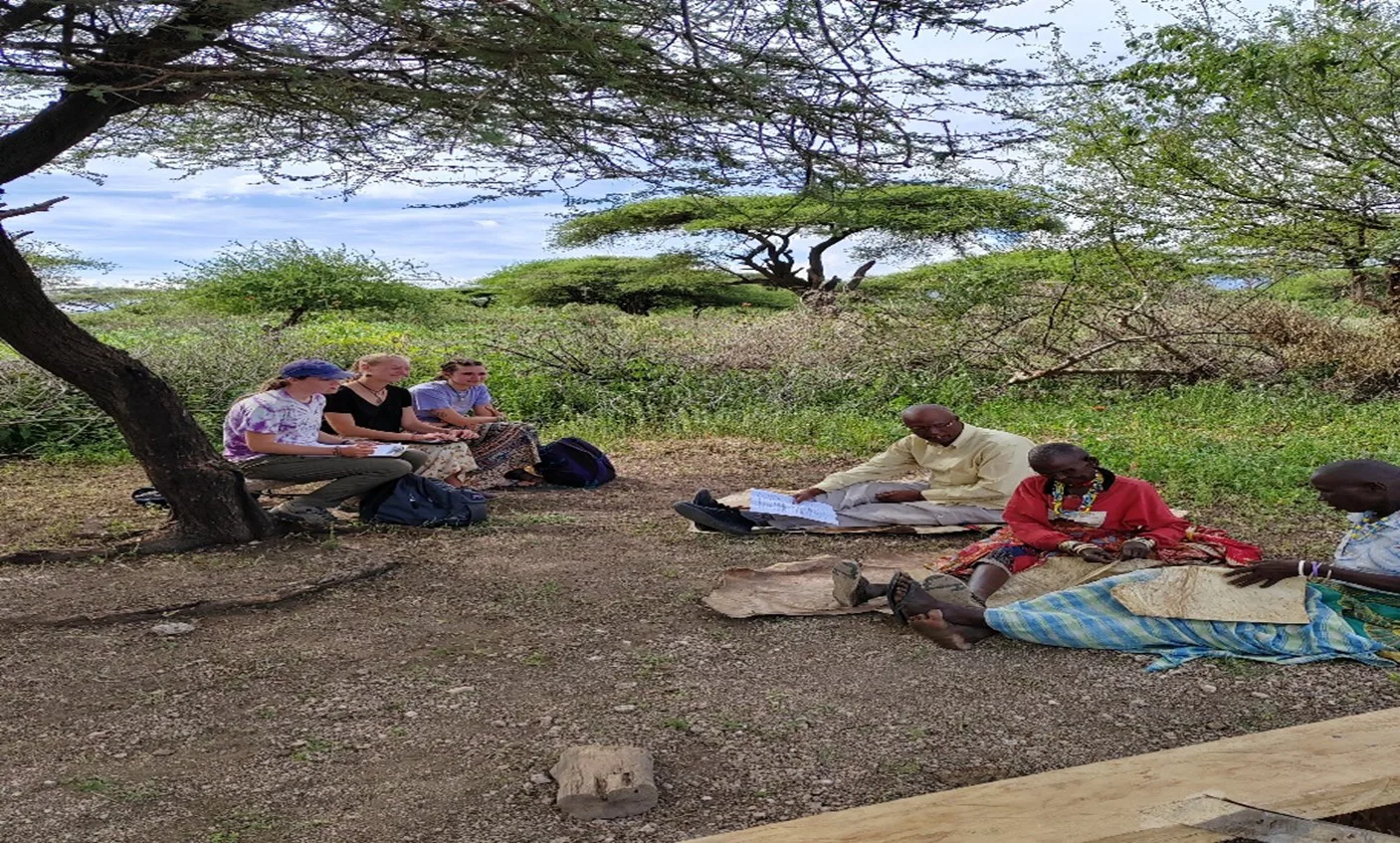
Photo taken by John Mwamhanga
These changes in climate and weather impacted them negatively as pastoralists as there is less suitable pasture and less water for domestic use and livestock drinking. Further, they have noted the emergence of invasive plant species such as Gutenbergia cordifolia that are not palatable to livestock.
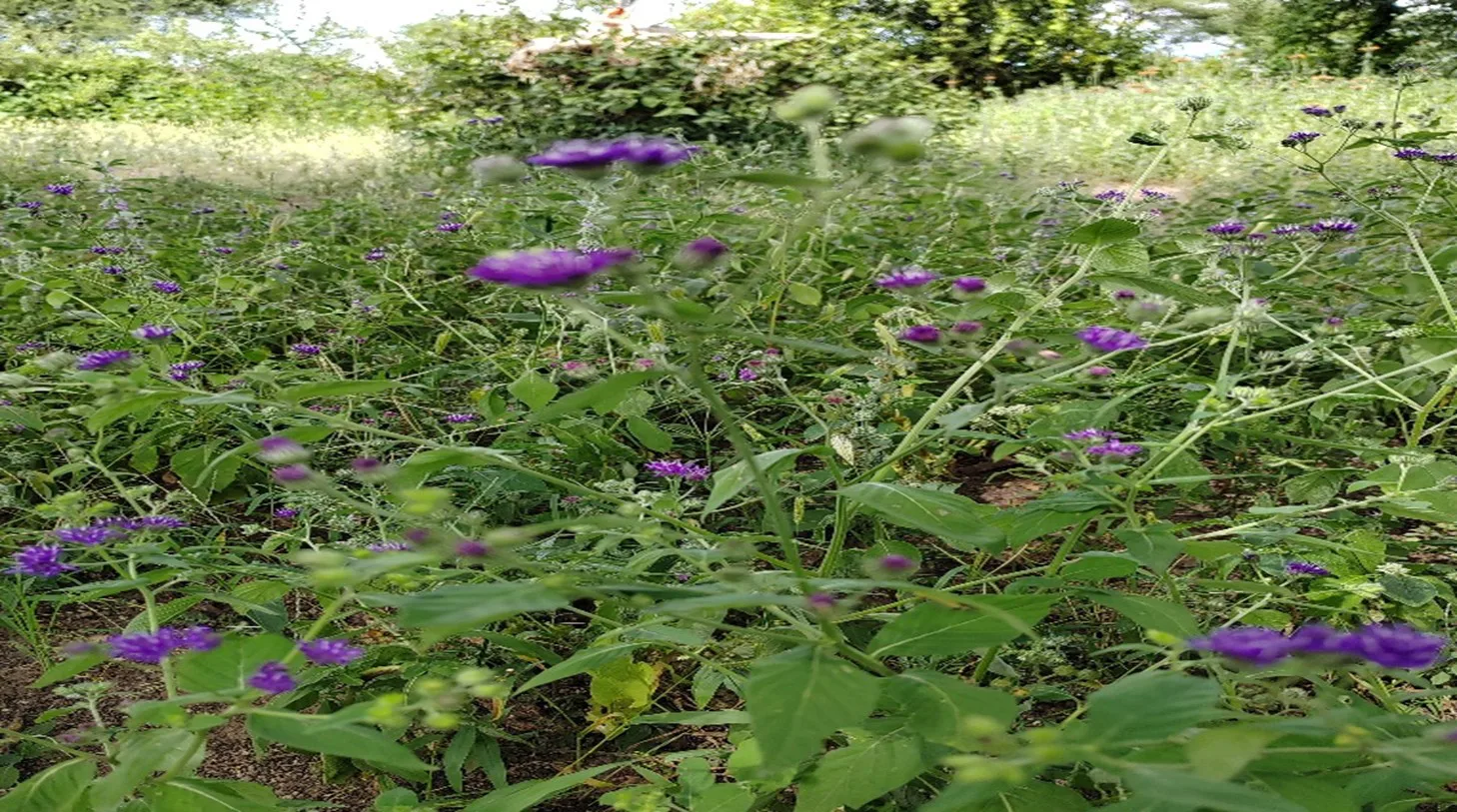
The Datoga pastureland showing one of the invasive species Gutenbergia cordifolia
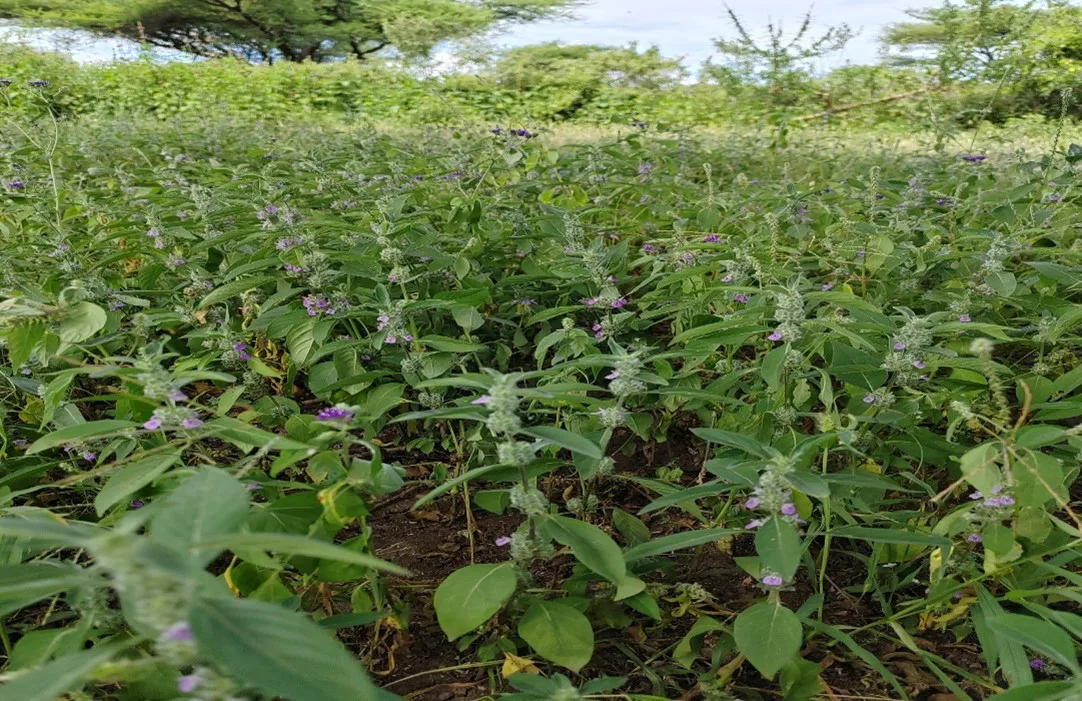
Unpalatable invasive herbs have colonized part of grazing land at lake Eyasi basin.
These invasive plants are colonizing large areas that previously supported pasture grasses. The Datoga community perceive that climate change induced the emergence of the invasive plants by creating favorable conditions for these plants to prosper, causing the land suitable for grazing to shrink. All these factors led to decreases of livestock in terms of health and numbers which is the major livelihood dependence to Datoga community in the area.
To alleviate the deteriorating livelihood situation, most of Datoga families are now engaging in black smith activity as additional source of livelihood where they use scrap metals to make copper and iron items such as arrow heads, which they barter trade with Hadzabe for bush meat, and also, they make knives, hand hoes, bangle, earrings, necklaces etc. These goods are sold to the local community and to tourists that pass-through on route to visit Hadzabe families (hunters and gathers).
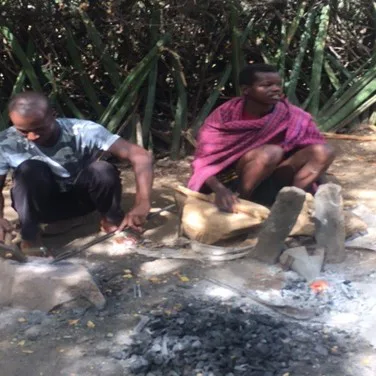
The Datoga tribe traditional Blacksmith at work at Qang`dend village in Mang`ola area, lake Eyasi basin.
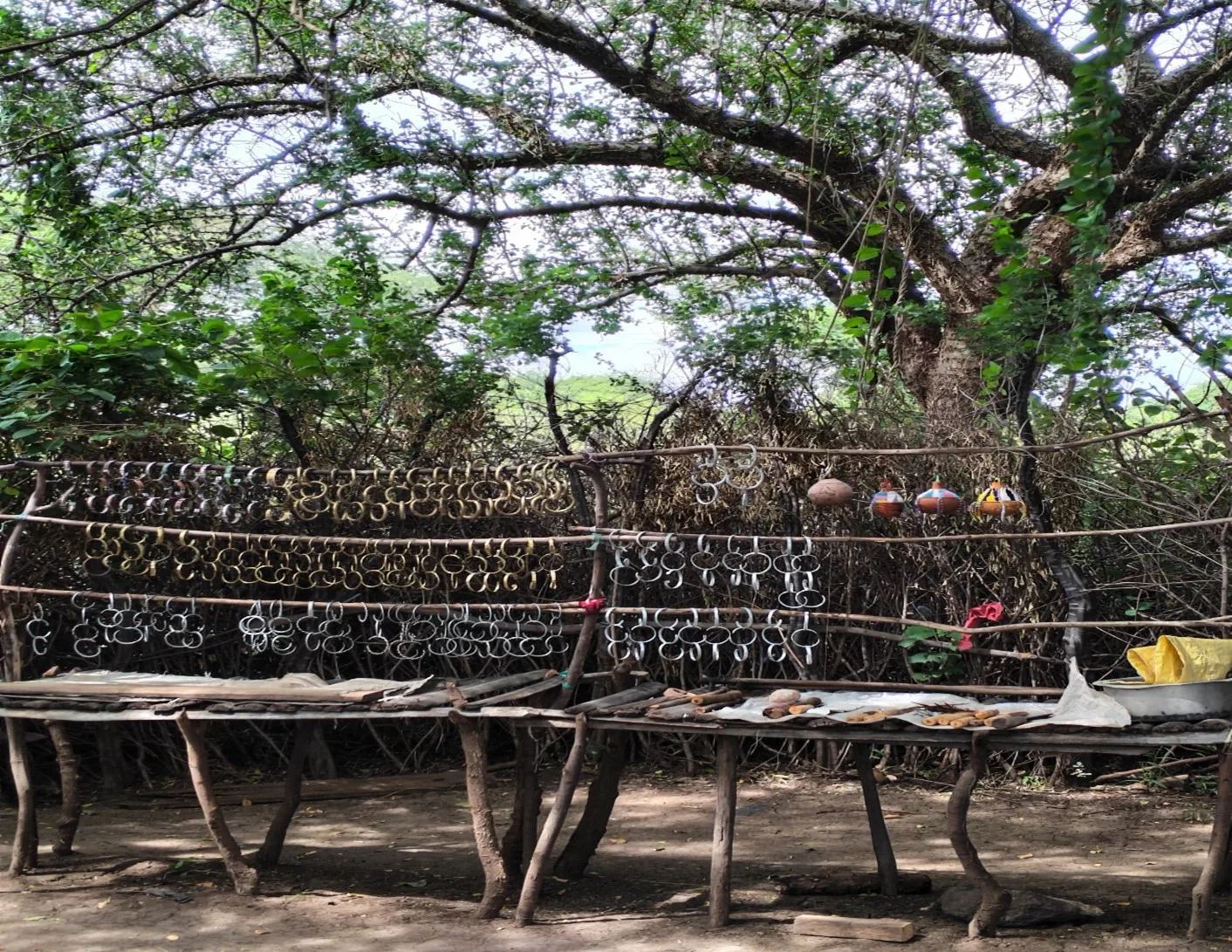
Datoga tribe traditional Blacksmith products at display for tourists and local buyers.
__________
Curious about SFS Tanzania? Click here to read more.
Related Posts
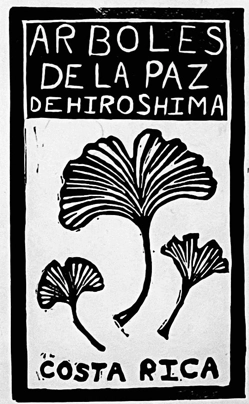
Trees of Peace from Hiroshima: A Time Traveler and Emissary of Hope
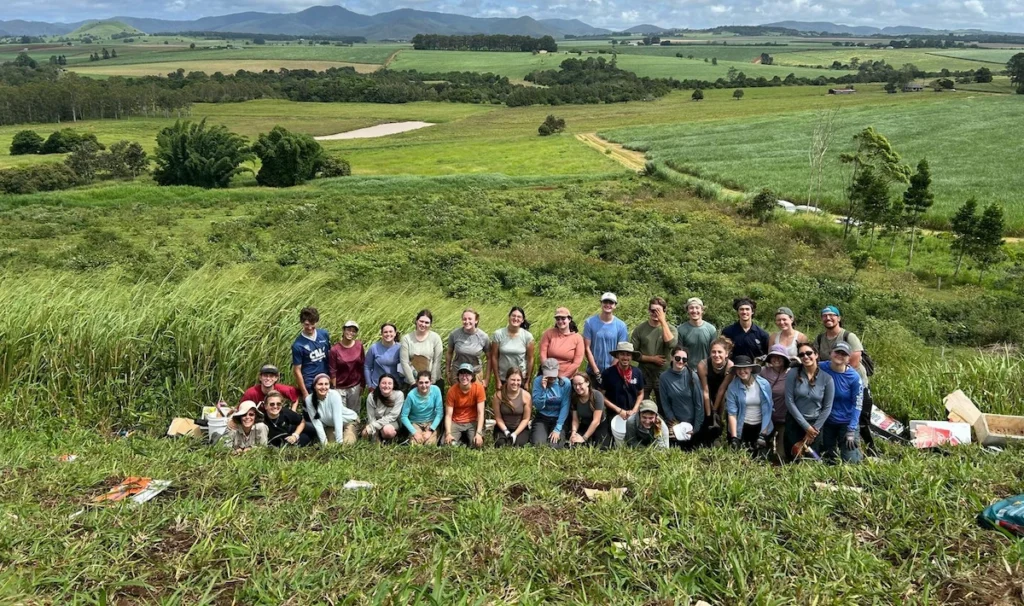
Cinder Cone Chronicles: Lessons from Drought, Data, and Determination

